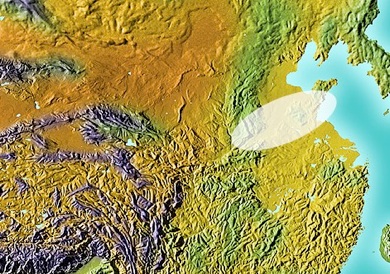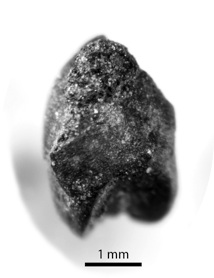NORTH CHINA
 |
My involvement with Chinese archaeology has a long and convoluted history. I was investigating a significant agricultural complex in Hokkaido, Japan in the 1980s. The crop assemblage was extraordinary, consisting of most of the main crops found in Japan ca AD 800 and in China from much earlier. Our team decided to investigate the development of this crop complex. Prof. Yoshizaki of Hokkaido University had connections with archaeologists in Heilongjiang Province so we arranged to travel there together. Unfortunately his health took a bad turn so I went on my own. That trip was pivotal in building connections there and by the early 1990s I was starting research there. One of my first involvments was with the Shang Origins project directed by the late K.C. Chang at Harvard. The collaboration included Jian Leng of Washington University in St; Louis, Jimmy Zhao of the Institute of Archaeology in Beijing (CASS), and Robert Murowchick at Boston University. I also connected with Liu Li at Latrobe University in Australia, and Anne Underhill of the Field Museum in Chicago. I introdiced flotation to these teams in Mississauga and from there we established flotation recovery of plat remains to all of their projects in China. My primary base of operations in China is at Shandong University in Jinan, Shandong Province. We are examining Early through Late Neolithic and early Shang period plant remains to reconstruct early agricultural systems through time. |
Chinese Academy of Social Sciences.CASS |
|
 |
Shandong Archaeology Zhejiang Archaeology Broomcorn millet grain from the Yuezhuang site, Shandong (ca. 6000 B.C.) |
SOUTH CHINA
| Another of my research projects is in Zhejiang Province where my colleagues and I have been investigating early food production. We're particualrly interested in how rice became part of the human fold. I have been collaborating with colleagues at Fudan University (Prof. Yan Pan) and the Zhejiang Provincial Institute of Archaeology (Jiang Leping and Zheng Yunfei). |